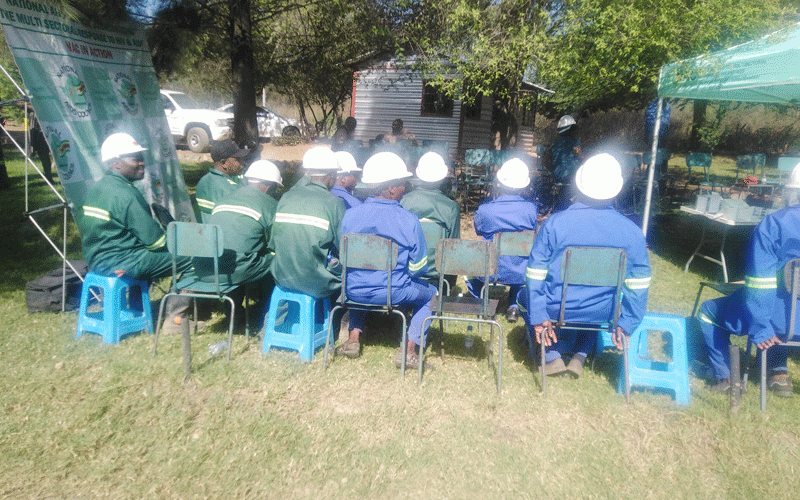
WORKERS in Zimbabwe are trapped in a perfect storm. They are in the middle of a sea of challenges. One wonders how many workers are even making ends meet.
The country is in the throes of hyperinflation. There is fierce rapid depreciation of the Zimbabwe dollar. It has been on a free-fall.
The consequences are far-reaching.
Apart from inflation, workers are battling high taxes considering income tax rates charged on low and medium income earners. These factors have created a harsh reality for hardworking Zimbabweans who have been turned into paupers.
Hyperinflation has wreaked havoc on the economy, eroding the value of the Zimdollar at an alarming rate. Prices of essential goods and services have skyrocketed. Essentially, it is becoming increasingly difficult for workers to afford some of the most basic necessities. The purchasing power has dwindled, plunging them into a cycle of perpetual financial struggle. It’s painful.
But what is exacerbating the situation are the high income tax rates on low and middle income earners. The taxes are some of the highest in the world.
Calculations by the Zimbabwe Independent, published in this edition revealed that salaries of the 6% of formally employed hardworking citizens are wiped out by high income tax rates, medical and funeral insurances.
It is simply depressing. A huge percentage of salaries for the majority of workers is going towards Pay As You Earn (Paye), medical and funeral covers, leaving them barely able to survive.
- Mayhem as schools reject Zimdollar fees
- Forex demand continues to fall
- USD fees: Govt policy failure hurting parents
- Zimdollar shortage hits the country
Keep Reading
Worsening an already precarious economic situation is the rapid depreciation of the Zimdollar.
The domestic unit has lost value by 647% on the parallel market since January. The local currency has seen its value tumble to a peak of US$1:ZW$10 000 on the parallel market this month, from US$1:ZW$750 in January. However, this week it slightly stabilised at US$1:ZW$7 770 on the parallel market as of yesterday.
Much of the crash rocked Zimbabwe from May 31, when President Emmerson Mnangagwa proclaimed the August 23 election date.
As the Zimdollar plummets, both local and imported goods have become prohibitively expensive. Resultantly, the gap between income and expenses for Zimbabwean workers has widened.
Following spirited efforts to contain the inflation rate through a blended system, the rate bolted to 175,8% this month, up from 86,5% in May, laying bare the seriousness of headwinds choking the country.
Companies have responded by effecting wage hikes to cushion workers, which created a population of millionaires, but poor ones.
Still, the current wage levels of over ZW$1 million for many workers, fall far below the rate at which the currency has depreciated.
Income tax brackets, which came into effect in January only exempt individuals earning ZW$91 666 (about US$12) per month from paying taxes.
Many Zimbabweans after the salary hikes earn more than ZW$1 million (about US$131), pushing them into the 40% tax bracket, which is the highest.
To put things into perspective, let me calculate for a worker, who earns ZW$1,2 million. After income tax deductions, their net is ZW$870 466 (US$114). But if I deduct Nssa, lowest medical insurance scheme at ZW$269 000 per adult person and funeral assurance ZW$100 000, the take home salary is reduced to a paltry ZW$209 146 (US$27). If we add medical insurance of ZW$161 000 per child, the salary can go to minus, depending on the number of children.
For a person earning ZW$2 million, ZW$649 466 goes to income tax. From the ZW$1,35 million net, if we deduct Nssa, funeral assurance and medical insurance for two adults and two children, they are left with ZW366 680 (US$48).
The situation is dire if they opt for a private hospital scheme, whose premiums as of this week stood at ZW$592 000 for a single adult and ZW$345 000 for a child.
This paints a very sad picture.
This triple whammy of low salaries, inflationary pressure and high taxation has pushed many workers to the brink of extreme poverty. It’s just a perpetual cycle of poverty and despair. They now have to make tough choices, to drop medical and funeral insurances. It is, therefore, imperative that the government takes decisive action to alleviate the burden on its citizens. It has to restore economic stability. On the other hand, companies must also craft ways to cushion workers.
In the interim, the government must immediately implement measures focusing on tax reform. In a hyper-inflationary environment, there is need to review the tax brackets regularly - not twice a year as is the case.
Lowering tax rates for low and middle-income earners would provide much-needed relief and stimulate spending, which can help boost the economy.
The government must also enhance social safety nets to provide a lifeline to vulnerable workers and their families.











